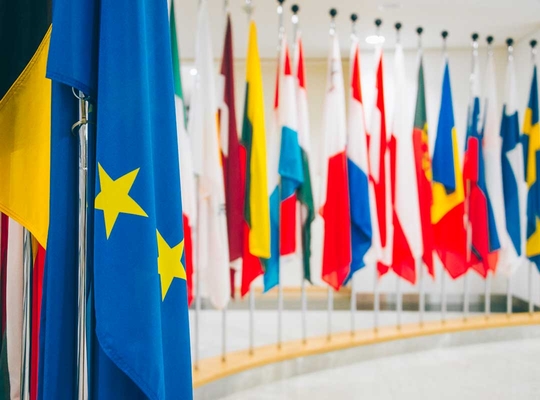You are here
The N-VA: “The EU must urgently focus on core tasks: protecting citizens and businesses”

The European Union has largely brought the energy crisis upon itself and is failing in its duty to protect its citizens and economy. That is the analysis made by the European N-VA group following yet another State of The Union in times of crisis. Instead of being preoccupied with itself and taking over powers from the Member States, the EU must focus on its core tasks and look ahead strategically. “The EU must put more effort into growth-promoting measures, anticipate and not always reactively plug gaps with more powers, more money and new funds,” says N-VA delegation leader in the European Parliament Geert Bourgeois.
Geopolitical naivety
The N-VA is still waiting for European Commission President Ursula von der Leyen’s promise of Europe as a “global actor”. In light of the totally changed world, far too little effort has been made to diversify supply chains. The coronavirus crisis has already made this painfully clear, but Europe is also too dependent on Russia for energy and too dependent on China for the manufacturing industry.
Geert Bourgeois: “I therefore strongly advocate a new assertive impetus for trade: this must generate growth and rapidly reduce our dependence on authoritarian regimes. Trade agreements must address specific needs, including the supply of critical raw materials and minerals, with a view to the energy transition and supply chain security.”
Energy: protecting Competitiveness The extent to which companies in one country can compete with similar companies in another country. A law came into force in Belgium in 1996 to monitor competitiveness. This stipulates that Belgian salaries may not evolve faster than the average of those in the three neighbouring countries. The Central Economic Council (CEC) performs an annual measurement to see if the objectives have been obtained. competitiveness and purchasing power
“Von der Leyen’s proposals will make no difference to citizens and businesses this winter. Yet that was precisely the Commission’s task: to present an emergency plan,” says Johan Van Overtveldt, chairman of the Budget Committee. “It is highly unclear what will in practice fall under the price ceiling for renewable and nuclear energy. Skimming off surplus profits in the fossil fuel sector sounds good, but will it hold up legally, and what about non-EU producers? In any case, the Commission is faced with diverging interests and must hope for the approval of all the Member States. In practice, this will mean that concrete effects will take a long time.”
The EU has only itself to blame for the energy crisis
Van Overtveldt points out that Europe is largely responsible for the current energy crisis: “Europe has relied on an economic model based on cheap Russian gas for decades. The evolution towards renewable energy production is necessary, of course, but this shift has been underestimated, in terms of both price and time.”
Europe has invested too little in its own energy supply and infrastructure in recent decades, Van Overtveldt continues: “Moreover, investing in nuclear power must be a foregone conclusion at this point. It is a renewable energy source without CO2 emissions that would provide us with greater security of supply and independence.”
Tackle illegal migration with real resolve
Finally, the EU must urgently pursue a conclusive migration policy. After the banking crisis, the coronavirus crisis, the Russian invasion with the flow of refugees from Ukraine and the current energy crisis, the EU can absolutely not afford another migration crisis. MEP Assita Kanko: “It is good that the EU continues to stand united behind Ukraine and that Olena Zelenska is here. Von der Leyen has my full 100% support for that.”
Kanko warns: “In order to maintain popular support for this necessary geopolitical battle and for Europe, it is also important that you propose a substantive vision for the broader internal policy that must be pursued, such as tackling illegal migration with real resolve and halting the ever-growing drug trade and the violence that accompanies it. Your foreign policy sets the right accents. Now do the same for your internal European policy.”

